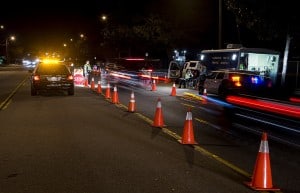 Implied consent laws are common in every state, and they are most often administered by a law enforcement officer during the course of a traffic stop or at a sobriety checkpoint. These are the laws that you agree to when you are given your driver’s license that say you will allow a blood alcohol concentration (BAC) test if you are suspected of driving under the influence of alcohol. If you currently hold a driver’s license in Mississippi, for example, then you must submit a chemical sample (breath, blood or urine) when asked, or, you face the consequences of violating the implied consent laws, in addition to any DUI penalties as a result of your test.
Implied consent laws are common in every state, and they are most often administered by a law enforcement officer during the course of a traffic stop or at a sobriety checkpoint. These are the laws that you agree to when you are given your driver’s license that say you will allow a blood alcohol concentration (BAC) test if you are suspected of driving under the influence of alcohol. If you currently hold a driver’s license in Mississippi, for example, then you must submit a chemical sample (breath, blood or urine) when asked, or, you face the consequences of violating the implied consent laws, in addition to any DUI penalties as a result of your test.
It isn’t just a law enforcement officer in Mississippi who can require your BAC testing if you’re suspected of drinking and driving, however. If you are acting like you are intoxicated while driving, you could be asked to submit a sample by:
- Mississippi highway patrol officers.
- Mississippi sheriffs or deputies.
- Police officers in any city or municipality.
- National park rangers.
- Campus police officers at colleges or universities.
However, if a park ranger or campus police officer is not trained in the process, they are not legally authorized to require you to submit a breathalyzer or other test sample. Also, you are not required to submit a breath test within 15 minutes of your last drink of alcohol… but, you will likely be detained until that time has passed.
Mississippi implied consent laws keep the safety of the public in mind. If your BAC test measures at .08 percent or above, you will be found guilty of drinking and driving, and you will be looking at plenty of fines, possible jail time and an ignition interlock requirement. However, if you are sober when driving, your “implied consent” won’t be a factor in any crime related to drinking and driving, no matter who administers your BAC test.

Leave a Reply
You must be logged in to post a comment.